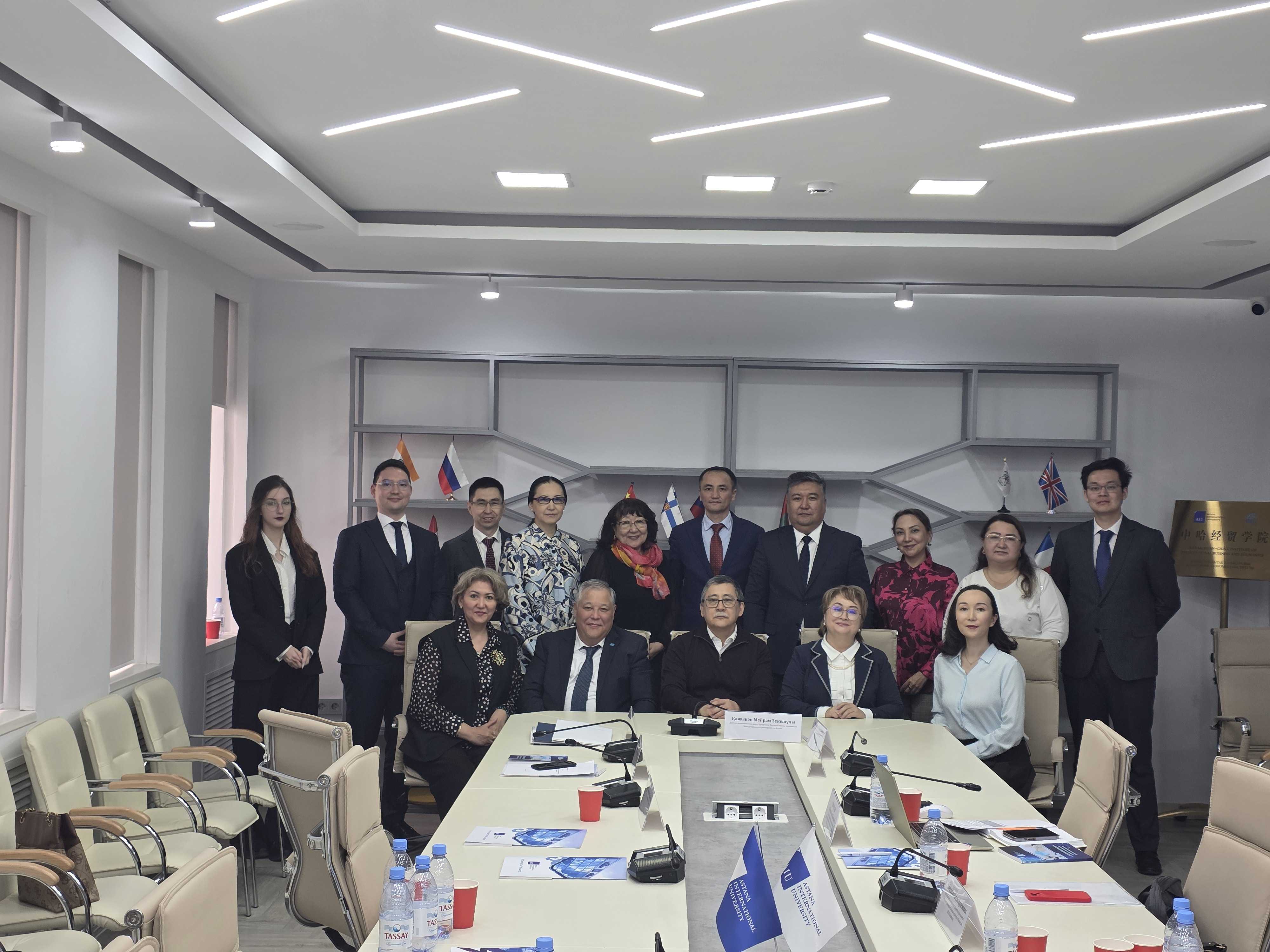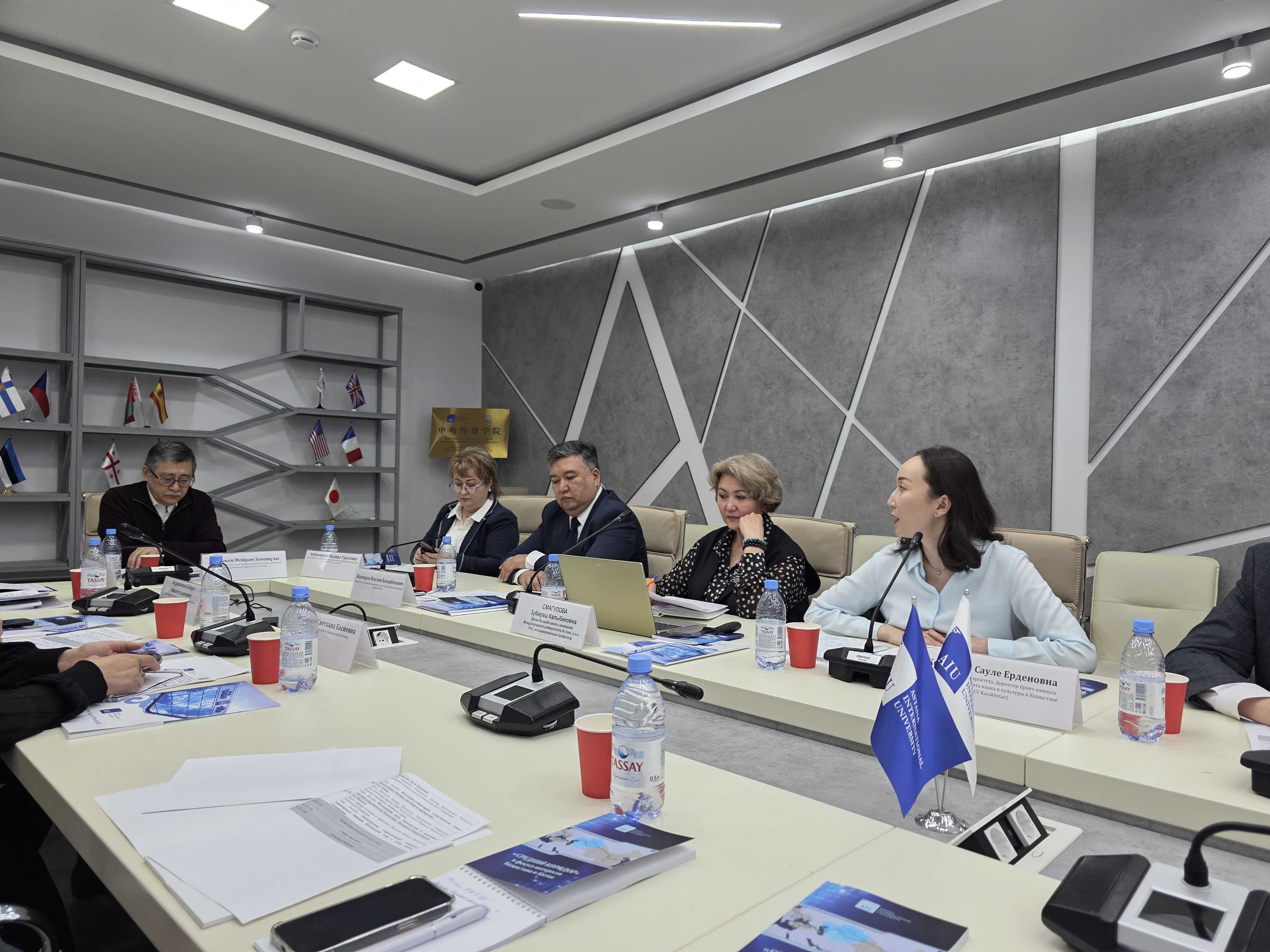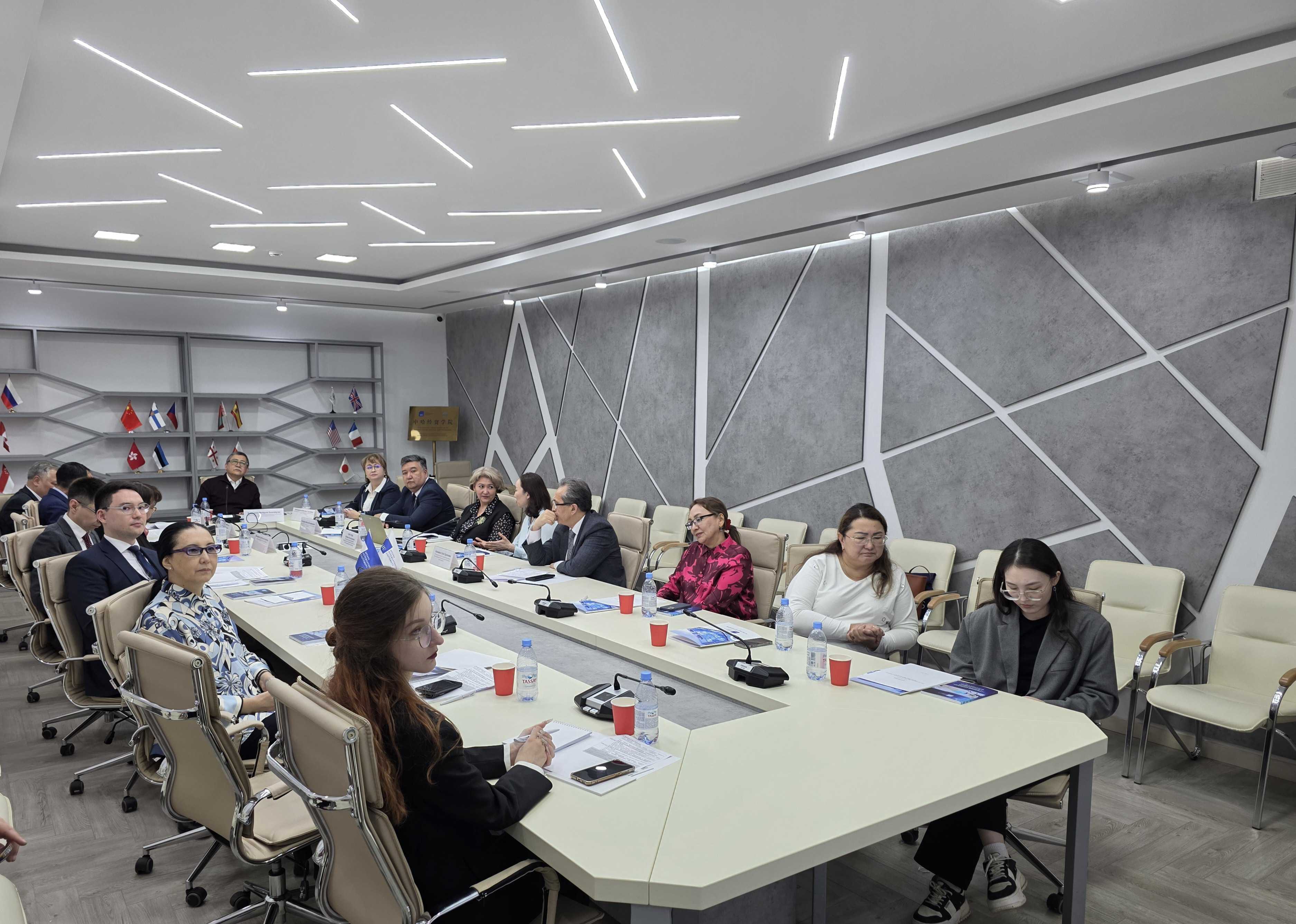On April 25, 2025, the Astana International University became a platform
for an important dialogue on the future of education and logistics in the
context of the global "Belt and Road" initiative. The round table,
organized by the Research Institute of the New Eurasian Land-Sea Intermodal
Transport Corridor and the Higher School of Economics of AIU, brought together
leading experts from academia, government agencies, and industry organizations
to discuss key issues of cooperation between Kazakhstan and China.
The round table's moderator, Doctor of Economics, Professor of the
Higher School of Economics of AIU, Kazhiken Meiram Zekeshuly, set the tone of
the discussion with his opening report on "The Middle Corridor in the
Focus of Interests of Kazakhstan and China." He emphasized the growing
strategic importance of this transport route and the need to consolidate
efforts for its further development.
Leading experts presented diverse perspectives on cooperation within the
"Belt and Road" initiative. Indira Aubakirova, Director of the
Institute of Legislation and Legal Information of the Ministry of Justice of
the Republic of Kazakhstan, emphasized the importance of cultural diplomacy and
academic exchanges. Manarbek Kabaziev, Deputy Chairman of the Board of the
Institute of Foreign Policy Studies under the Ministry of Foreign Affairs of
the Republic of Kazakhstan, highlighted the prospects for the development of
energy corridors between China and Central Asia. Zhaslan Zhagparov, Deputy
General Director of the Kazakhstan Union of Transport Workers
"KAZLOGISTICS," focused on the development prospects of transport
corridors in the region. Kairat Abdrakhmanov, Vice President of Astana
International University, spoke about Kazakhstan-China cooperation in education
and culture.
Svetlana Kozhirova, Professor of the International University of Astana,
analyzed the problems and prospects of the development of transport routes in
Central Asia. Saule Koshanova, Director of the Beijing University of Language
and Culture branch campus in Kazakhstan (BLCU Kazakhstan), highlighted the
issues of cultural and humanitarian interaction between Kazakhstan and China.
Zubirash Smagulova, Dean of the Higher School of Economics of the International
University of Astana, presented the possibilities of dual degree education.
Azamat Nurseitov, Chief Researcher of JSC "Institute of Economic
Research," shared his vision of Kazakhstan-China relations.
A significant aspect of the event was the online participation of
experts from China. Sun Jun, Dean of the Business Faculty of Jiangsu Ocean
University and Executive Director of the New Eurasian Land-Sea Transport
Corridor Research Institute (China), and Dong Shaozeng, Associate Professor of
the Department of Logistics and Marketing of Jiangsu Ocean University,
presented analysis on the role of the port of Lianyungang and the strategic
importance of the Central Asian transport corridor within the initiative.
Nurlan Nurseitov, Professor of the Faculty of Economics and
Entrepreneurship of the Deutsch-Kasachische Universität, also participated
online with a report on "Freight Traffic Management along the Middle
Transport Corridor: Current Status and Prospects," offering his
recommendations for optimizing logistics processes.
The relevance of the round table is due to the increasing role of
Kazakhstan in global logistics and the need to train a new generation of
specialists capable of working effectively in a globalized environment. The
theme of the event is directly related to achieving the Sustainable Development
Goals (SDGs), including SDG 4 (Quality Education) through discussions on
personnel training and the development of educational programs, SDG 8 (Decent
Work and Economic Growth) through the training of specialists for the transport
and logistics industry, SDG 9 (Industry, Innovation, and Infrastructure)
through the development of transport corridors, and SDG 17 (Partnerships for
the Goals) through international cooperation and dialogue. Following the
fruitful discussion, a collection of reports and analytical materials will be
prepared, which will become a valuable resource for the further development of
scientific, educational, and logistical cooperation between Kazakhstan and
China. The materials of the collection will be available on the official
website of the Astana International University.
Astana International University expresses sincere gratitude to all
speakers and participants for their valuable contribution, active
participation, and willingness to further cooperation!


